Group 4 : KCNK3, NMDAR & ionic channel pathways
Senior researchers
 Dr. Fabrice Antigny, Ph.D., HDR
Dr. Fabrice Antigny, Ph.D., HDR
Fabrice obtained his Ph.D. in Life Sciences from the University of Poitiers (2008), during which he studied Ca2+ homeostasis in cystic fibrosis epithelial cells (F508del-CFTR). He then completed two post-doctoral internships at the Geneva faculty of medicine (Switzerland). From January 2009 to March 2011, he investigated the molecular identity and physiological role of Ca2+ channels in human endothelial cells. Then from April 2011 to September 2013, he studied the role of Store-operated Ca2+ channels in human skeletal myogenesis.
In September 2013, Dr. Fabrice Antigny joined the INSERM UMRS_999 led by Pr Marc Humbert as a post-doctoral researcher (ITMO/Aviesan) to study the role of ion channels in the pathophysiology of PAH (at the pulmonary vascular and right ventricular levels).
In April 2017, Dr. Fabrice Antigny was recruited as a research fellow (CR1 or associate professor) at INSERM with the project to study the role of ion channels in the development of PAH. He is currently studying with his team the role of ion channels (KCNK3, ABCC8/Kir6.2, CFTR, TRPC/Orai) in the development of PAH. In January 2019, he obtained the Habilitation to Supervise Research (Paris Saclay University).
Since 2022, Fabrice is the co-team leader of team 2 INSERM UMR_999.
Contact: This email address is being protected from spambots. You need JavaScript enabled to view it.
 Dr. Sylvia Cohen-Kaminsky, Ph.D., HDR
Dr. Sylvia Cohen-Kaminsky, Ph.D., HDR
Sylvia is an immunologist and research director at CNRS since 2002. She has worked in autoimmunity, hematology, neuroimmunology, and, more recently, on cognitive aspects such as the role of peripheral NMDA receptors in the communication between immunological synapses and vascular cells. In 2010, she joined INSERM UMR_S 999, and from 2015 to 2019, co-directed with Pr Marc Humbert a research team 2 of INSERM UMR_S 999, dedicated to "Physiopathology of PAH" with the objective of discovering new biomarkers and therapeutic targets to diagnose and treat PAH. She is the author of more than 100 scientific publications and four patent families as lead inventor. Her work has been supported by more than 30 grants, including AFM, ARC, Europe (5th, 6th FP), FRM, ANR, FRSR, LabEx LERMIT, Idex Paris Saclay, and SATT Paris Saclay. She was co-director of the UMS IPSIT (Institute of Therapeutic Innovations of Paris Saclay) from 2015 to 2019. Member of the French Society of Immunology (SFI), where she was secretary general from 2012-2014, she worked for women's equity in immunology and science. She is vice president of the Scientific Council of the Paris-Saclay Faculty of Medicine and an invited member of the Research Commission and the Academic Council of the University of Paris-Saclay. She represents the University of Paris-Saclay in the Paris-Boston Women's Forum, a university network for gender equality). She is a Women and Science Association member and participates in the Women and Science Mentoring program of the University of Paris-Saclay. She is a member of international learned societies such as the ERS, the ATS, and the PVRI, where she participates in the "Pharma Task Force IDDI, Innovative Drug Discovery Initiative." She initiated the creation of an INSERM-Université Paris Sud-Technion international laboratory. She contributed to prove the concept that PAH can be detected in exhaled air by an artificial electronic nose based on nanosensors (Cohen-Kaminsky et al., Am J Crit Care Med, 2013, Nakhleh et al. Eur Resp J 2017, Nakhleh et al. ACS Nano 2017), resulting in the ongoing clinical trial Snoopy2 (NCT02782026) sponsored by AP-HP, for which she is the scientific director under an AP-HP interface contract. Member of LabEx LERMIT and DHU TORINO, she coordinates innovative and multidisciplinary projects at the Biology-Chemistry-Medicine Interface, with the discovery and validation of NMDAR as an innovative target involved in vascular remodeling leading to PAH and the development of new drugs targeting peripheral NMDARs that do not pass the BBB (Medicen label, support from LabEx LERMIT (http://www. lab-lermit.fr/en/25-projets/projet-target/t1/30%20-t1-2) and the ANR (ANR NUTS, https://anr.fr/Projet-ANR-14-CE16-0016), pre-maturation support from Idex Paris Saclay and technology maturation support from SATT Paris Saclay (NUTS-Mat project, https://satt-paris-saclay.fr/vitrine-technologique/nuts-mat/). Three families of patents protect its discoveries (WO/2017/093354, WO/2017/017116, WO/2017/216159), and a start-up is being created to develop a drug candidate for the treatment of PAH. In order to be a real actor in the creation of her company, she recently obtained a grant from the "Banque Populaire" for an original MBA training in entrepreneurship in life sciences (https://www.life-sciences-leadership-school.com/fr/). In the continuity of this work, she is currently developing a project on the impact of the pulmonary microbiota and its metabolites on vascular remodeling and PAH (ANR LUMI, https://anr.fr/Projet-ANR-18-CE14-0043).
Contact: This email address is being protected from spambots. You need JavaScript enabled to view it.
 Dr. Véronique Capuano, Ph.D.
Dr. Véronique Capuano, Ph.D.
Véronique Capuano joined the Marie Lannelongue Hospital research unit in 1997 to provide the basis and understanding of the molecular mechanisms involved in calcium (ICaT) and potassium (Kv) channel dysfunction during ventricular hypertrophy and heart failure. Dr. Véronique Capuano has developed a model of left hypertrophy by abdominal aortic stenosis and has demonstrated the role of the renin-angiotensin-aldosterone system in the development of cardiac pathology. Since 2010, Dr. Véronique Capuano joined the INSERM UMR_S999 and showed the involvement of ICaT in the pathological PAH phenotypes of pulmonary arterial smooth muscle cells. Since 2017, in the group led by Dr. F. Antigny and Dr. S. Cohen-Kaminsky, Dr. V. Capuano is studying the role of ion channels in pulmonary hypertension in humans and animal models.
1997 Researcher at Marie Lannelongue Hospital: Study of calcium and potassium channels during cardiovascular pathologies.
1992- 1996 Post-doc CNRS University Paris XI (Study of the regulation of gene expression in filamentous fungi) and INRA Jouy en Josas (participation in the genome sequencing program of Bacillus subtilis).
1987- 1992 Ph.D. in biochemistry specializing in microbiology, Institut Pasteur.
Contact: This email address is being protected from spambots. You need JavaScript enabled to view it.
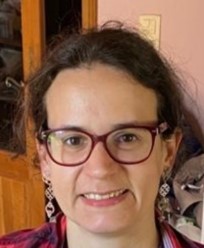 Dr. Angèle Boët MD, Ph.D.
Dr. Angèle Boët MD, Ph.D.
Angèle Boët is a Cardio-Pediatrician at Marie Lannelongue Hospital. She defended her medical thesis on 2010 October 08 at the Faculty of Paris VI (UPMC). Dr. Angèle Boët has also obtained various university specialization diplomas (perinatal medicine, pediatric cardiology, resuscitation of congenital heart disease). Since 2016, Dr. Angèle Boët is a hospital doctor in the resuscitation of congenital heart disease at the Marie Lannelongue Hospital. Then in 2019, Dr. Angèle Boët obtained her Ph.D. in Sciences within the doctoral school ED569. She completed her thesis under the supervision of Dr. Catherine Rucker-Martin, during which she studied "Left ventricular function and right heart pathologies: Interest of Electrical Cardiometry" (http://www.theses.fr/2019SACLS301). Dr. Angèle Boët actively participates in the different projects of team 2 of INSERM UMR_S999, especially concerning the echocardiographic characterization of our different animal models.
Contact: This email address is being protected from spambots. You need JavaScript enabled to view it.
Lab manager
 Mary Dutheil
Mary Dutheil
Mary joined team 2 of the INSERM UMR_S999 in October 2020 as a Research Technician (Marie-Lannelongue Hospital). Mary has a BTS in Biotechnology, and a Professional License in Biotechnology applied to health. Within Team 2, she is in charge of the culture of lung explants from patients. She also participates in team projects using biochemistry, cellular and molecular biology techniques, and immunohistochemistry. She is the prevention assistant for team 2 and is responsible for lab management.
Contact: This email address is being protected from spambots. You need JavaScript enabled to view it.
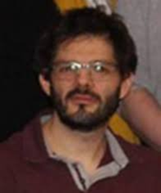 Yann Ruchon
Yann Ruchon
Yann Ruchon obtained a BTS in biological analysis and a specialization in cell culture and molecular biology from the Ecole Supérieure de Biologie et Biochimie in 1999. The same year, he joined the research laboratory of the Marie Lannelongue Hospital, and since then, he has been working with Dr. Véronique Capuano on topics he developed, such as the involvement of Ca2+(ICaT) and K+(Kv) channels in left ventricular hypertrophy. Yann Ruchon was then in charge of the culture of pulmonary vascular cells and studied the role of ICaT and SOC channels in the proliferation/apoptosis balance of these cells in PAH. In the last few years, Yann has dedicated his activity to the statistical analysis of the results.
Contact: This email address is being protected from spambots. You need JavaScript enabled to view it.
 Kristelle El Jekmek
Kristelle El Jekmek
Kristelle holds a Master's in Integrative Biology and Physiology in Vascular Biology, Atherosclerosis, Thrombosis, and Hemostasis from the University of Paris Cité. She joined team 2 of the INSERM UMR_S999 in October 2022 as an assistant engineer under the supervision of Dr. Fabrice Antigny. She is involved in the study aiming to understand the involvement of different ion channels in the pathophysiology of PAH and identify new molecular targets.
Contact: This email address is being protected from spambots. You need JavaScript enabled to view it.
Ph.D. students
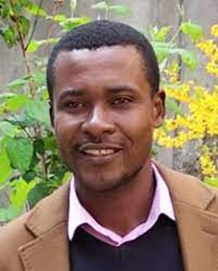 Firmin Akoumia
Firmin Akoumia
Firmin is a graduate of Master in Genetics and Species Improvement at the University of Abidjan and a Master of Science, Technology and Health, Integrative Biology: OMICs track at the University of Paris 12. Since 2019, Firmin starts a Ph.D thesis under the supervision of Dr. Sylvia COHEN-KAMINSKY. His work is focused on the role of the pulmonary microbiota in pulmonary vascular remodeling and searching for new tools and bio-therapeutic targets in understanding and treating PAH. Firmin is conducting in vitro studies of pulmonary arterial smooth muscle cells and endothelial cells to understand the role played by these cell types in the pathophysiology of PAH. Th Firmin is conducting also in vivo studies on axenic versus conventional rats, to measure the impact of the pulmonary microbiota on the development of the pulmonary vascular tree. Finally, Firmin is conducting in vivo studies on a PAH rat model to set up the impact of some bacterial metabolites on the development of PAH.
Contact: This email address is being protected from spambots. You need JavaScript enabled to view it.
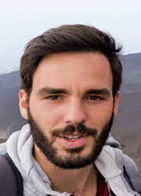 Bastien Masson
Bastien Masson
Bastien is a graduate of a Master Sciences, Technologies, Health, and Cellular Engineering course at the University of Poitiers (86). Since October 2020, he is a Ph.D. student in team 2 of the INSERM UMR_S999 unit and is supervised by Dr. Fabrice Antigny. His thesis project focuses on the role of Store-Operated Calcium Entry (SOCE) in PAH. In order to study the mechanisms of Store-Operated Channels (SOCs), he is conducting various in vitro studies on human pulmonary arterial smooth muscle cells. In addition, to improve the understanding of the SOCE mechanism and to analyze the effect of pharmacological molecules on the development and pathophysiology of PAH, he also performs studies on animal models of PAH.
Contact: This email address is being protected from spambots. You need JavaScript enabled to view it.
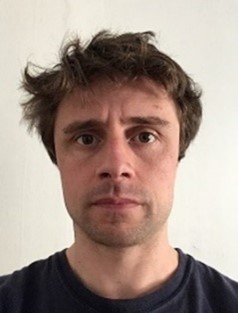 Florent Dumont
Florent Dumont
Florent has completed a bachelor's degree in biochemistry at Tours University, France, and a master's degree in bioinformatics at Nantes University, France. He joined team 2 of the INSERM UMR_S999 in December 2021 and started a thesis as a continuing education scheme (FTLV). His thesis project aims to build a pipeline of multi-omic data analysis and to implement this pipeline in an integrative meta-analysis of PAH to create a systemic and dynamic pattern of the physiological mechanisms at work in PAH. A first omics approach focuses on the therapeutic target NMDAR to better determine its involvement in vascular remodeling.
Contact: This email address is being protected from spambots. You need JavaScript enabled to view it.
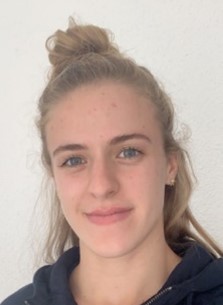 Anaïs Saint-Martin Willer
Anaïs Saint-Martin Willer
Anaïs is a graduate of the Master 2 BioINNOV (Biology Applied to Therapeutic and Diagnostic Innovation) of the University Paris Saclay. Since October 2022, she is a Ph.D. student in team 2 of the INSERM UMR_S999 under the supervision of Dr. Fabrice Antigny. Her thesis project focuses on the role of Orai1 calcium channel regulatory proteins in the development of PAH. In order to study the involvement of these proteins in the development of PAH, she performs biochemical analyses on human tissues and various in vitro experiments on human pulmonary vascular cells.
Contact : This email address is being protected from spambots. You need JavaScript enabled to view it.
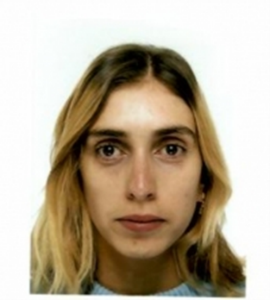 Lucille Penalva-Mousset
Lucille Penalva-Mousset
Lucille is a graduate of Master Tissue, Cellular, and Genetic Biotherapies of Paris Saclay University. In December 2020, she joined team 2 of the INSERM UMR_S999 to start a CIFRE thesis in collaboration with Metabrain Research. She is under the supervision of Dr. Sylvia Cohen-Kaminsky and Dr. Micheline Kergoat. Her thesis project focuses on the relationship between a metabolic pathway, the Kynurenine pathway, and the development of PAH. For this purpose, Lucille is conducting in vitro studies using cells of the pulmonary vascular wall (smooth muscle cells and endothelial cells) but also in vivo studies to evaluate new therapeutic targets in PAH
Contact: This email address is being protected from spambots. You need JavaScript enabled to view it.
